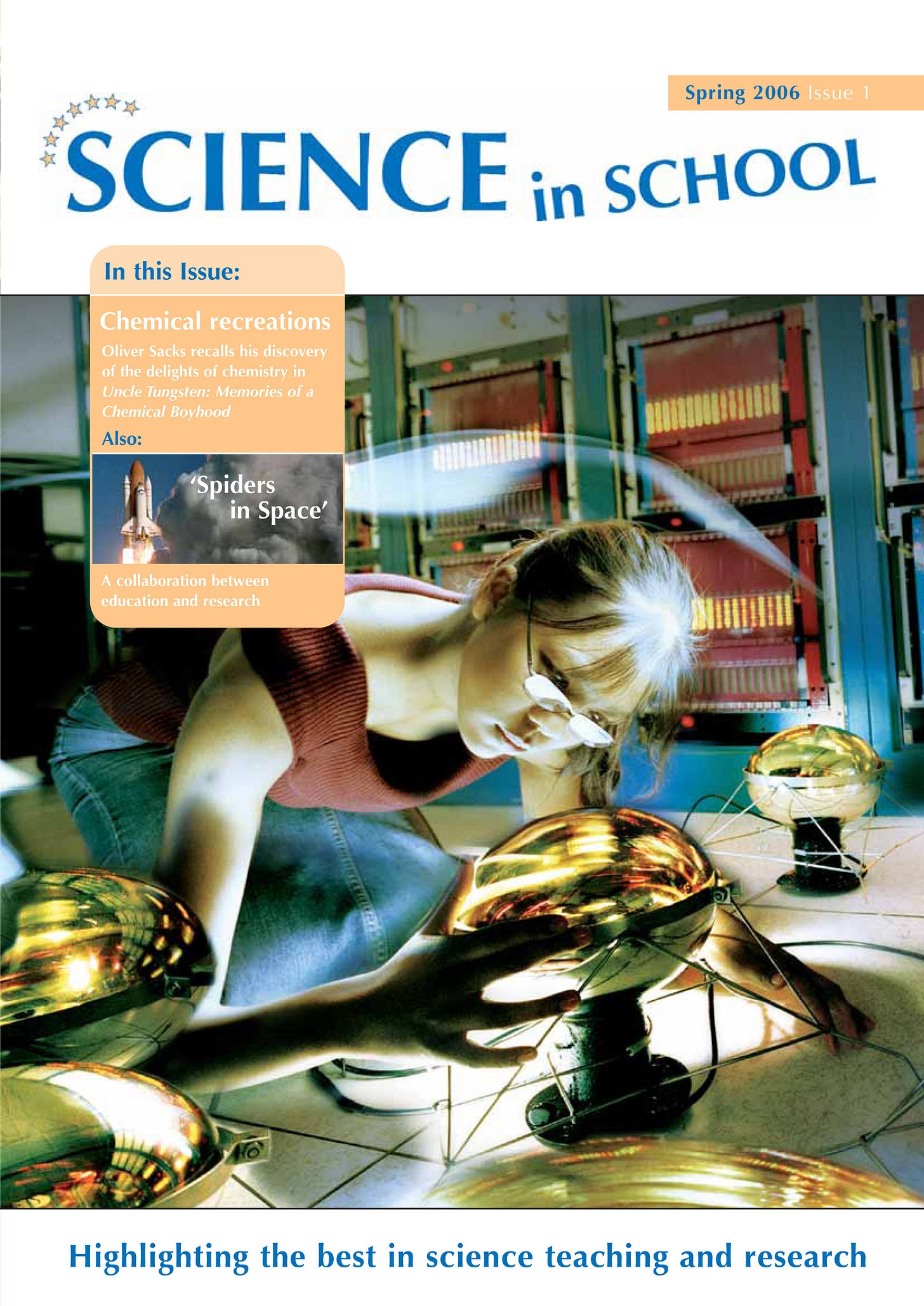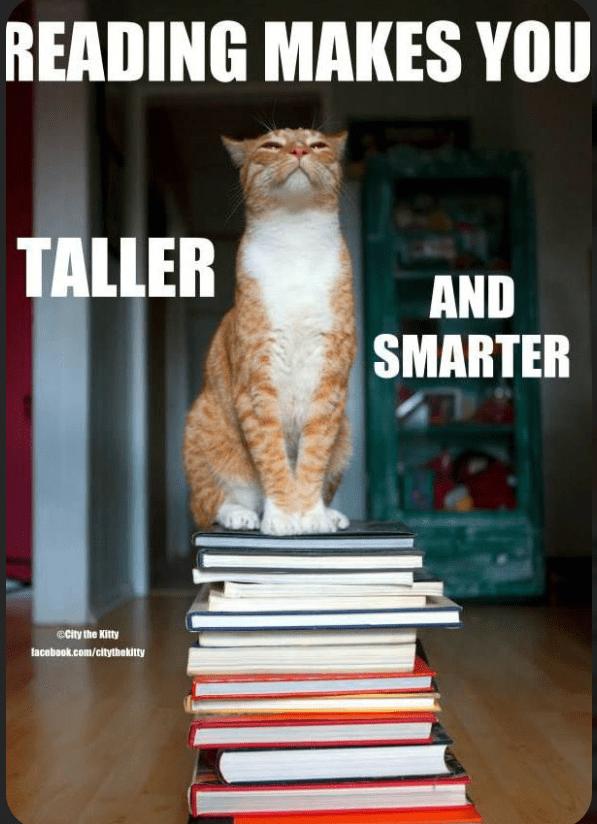Welcome to Friday Footnotes, a short weekly newsletter from Storygram Labs (with pictures!) about reading, motivation, children’s books, writers, and whatever else catches our attention!
Curious Research 🔬
We’ve carefully simmered down a few research papers to give you the tastiest jus from the bottom of the pan. Bon appétit!
1. Read to kids early, and read to them often 📚
One study1 suggests that the level of reading and maths skill a child has when they first step foot in a school building sets the trend for their later school years.
This argues against an earlier study2 that claimed inequality (meaning the gap in reading/maths skill) grows mainly when kids are out of school, during the holidays.
2. Strong reading skills can boost kid’s science test results... but they still need to learn science stuff, unfortunately 👩🔬
A good knowledge of science is required to perform well on science tests (like, duh) but being a strong reader boosts results even for students with lesser science knowledge.3

3. Oh, no! Your parents didn’t go to Oxford? You poor thing. Well, if you’re a child who enjoys reading, you still might 🎓
It must be hard for such children to put up with their dullard parents. Still, according to one study,4 a teenager’s brainpower5 is more strongly linked to reading for pleasure than to their parent’s education.
So there’s hope for the rest of us.

4. Handwriting is better for your brain than typewriting 🖋️
Step away from the iPad, and grab yourself a fountain pen (yes, they still exist).
We urge that children, from an early age, must be exposed to handwriting activities in school to establish the neuronal connectivity patterns that provide the brain with optimal conditions for learning.
This study6 was also cited in a recent report titled, “Writing is Thinking”, which argues that using an LLM (like ChatGPT, for example) to do your writing for you cuts out the most important parts of the thinking process:
Writing compels us to think — not in the chaotic, non-linear way our minds typically wander, but in a structured, intentional manner. By writing it down, we can sort years of research, data and analysis into an actual story, thereby identifying our main message and the influence of our work.
Here’s a related article (one of our more popular) from earlier in the year:
Worth a read 💯
Joel Miller is a Substacker who knows a thing or two about books.7 We recommend reading his article, “The Quiet Collapse of Reading—and the Only Real Solution”.

Here’s a sample:
If students don’t read when young, they can’t when old. They don’t have the skills, the necessary context for engagement, or the patience—which can only be acquired by reading.
Compare it to strength training. You can’t lift because you don’t lift. And just as lifting requires lifting, reading requires reading. If students can’t or won’t sit still long enough to read thirty pages, they won’t be able to read a hundred. Even if they could manage the simple mechanics of the effort, they wouldn’t understand what they’d read or possess the tools to grapple with what they don’t get.
But the real responsibility, Joel reckons, sits with the parents:
Kids mimic what they observe, not what we say. When parents say kids should read but spend their own time doomscrolling political news on X or playing with face filters, kids notice. Only a quarter of kids observed their parents reading books, according to one study;8 meanwhile, more than half noticed Mom and Dad glued to social media.
(Read the full article here).
Quote
“Reading for pleasure is the single biggest factor in success later in life, outside of an education. Study after study has shown that those children who read for pleasure are the ones who are most likely to fulfil their ambitions. If your child reads, they will succeed – it’s that simple.”
— Bali Rai9
That’s all for today. Have a wonderful weekend.
Hippel, Paul T. von, Joseph Workman, and Douglas B. Downey. “Inequality in Reading and Math Skills Forms Mainly before Kindergarten: A Replication, and Partial Correction, of ‘Are Schools the Great Equalizer?’” Sociology of Education 91, no. 4 (2018): 323–57. https://www.jstor.org/stable/48588643.
Downey, Douglas B., Paul T. von Hippel, and Beckett A. Broh. “Are Schools the Great Equalizer? Cognitive Inequality during the Summer Months and the School Year.” American Sociological Review 69, no. 5 (2004): 613–35. http://www.jstor.org/stable/3593031.
O’Reilly, Tenaha, and Danielle S. McNamara. “The Impact of Science Knowledge, Reading Skill, and Reading Strategy Knowledge on More Traditional ‘High-Stakes’ Measures of High School Students’ Science Achievement.” American Educational Research Journal 44, no. 1 (2007): 161–96. http://www.jstor.org/stable/30069474.
Sullivan, Alice, and Matt Brown. “Reading for Pleasure and Progress in Vocabulary and Mathematics.” British Educational Research Journal 41, no. 6 (2015): 971–91. http://www.jstor.org/stable/24808131.
Properly known as ‘cognitive progress in adolescence’ - a term that makes our brains hurt
Joel used to work at Thomas Nelson, and his Substack, Miller’s Book Review, is great.
https://en.wikipedia.org/wiki/Bali_Rai






Wonderful K.I.S.S.! "Keep It Simple, Stupid" in this case drives the point home that human development is embodied & requires physical activity for brain development. Here's a 10-day cursive writing course used by our granddaughter: 𝗟𝘂𝗰𝗶𝗱 𝗗𝗿𝗲𝗮𝗺𝗶𝗻𝗴 𝗔𝗹𝗽𝗵𝗮𝗯𝗲𝘁, https://open.substack.com/pub/captainmanimalagonusnret/p/lucid-dreaming-alphabet